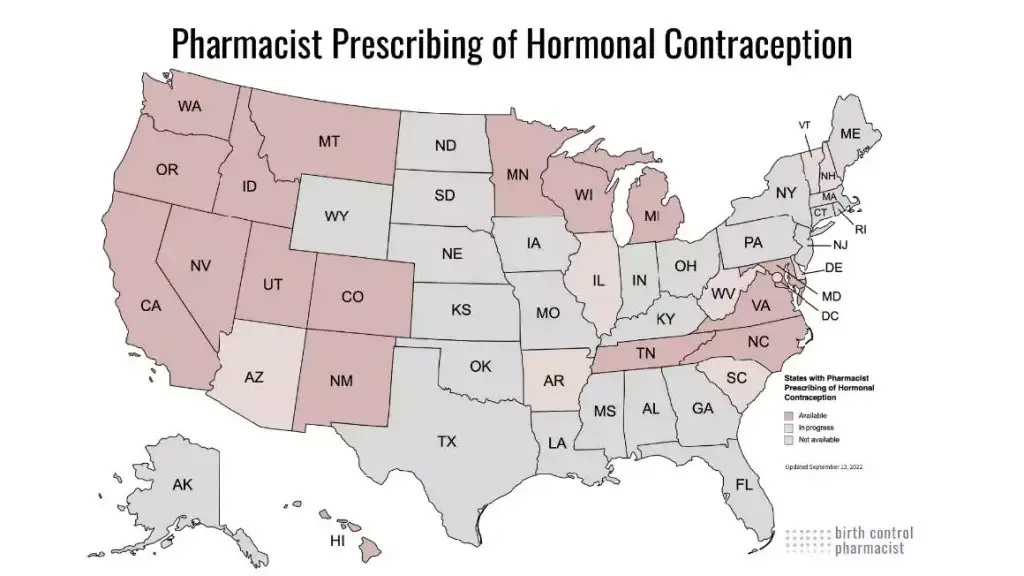
In 2017, Colorado became the third state to allow community pharmacists to prescribe birth control for patients without visiting their providers. Over 20 states have already passed or are working on similar legislature.
Visiting a participating local pharmacy is a great way to receive accessible family planning information and often begin same-day contraceptive treatment at low or no cost for most patients.
The visit takes 5-20 minutes and is more in-depth and personalized than buying over-the-counter contraceptive products like condoms or Plan B.

Visit Policies – Birth Control Pharmacist for state-by-state information.
Interested patients in Colorado who are at least 18 years old can fill out a self-screening risk assessment questionnaire here to determine if hormonal contraceptives suit them. After filling out the questionnaire, a few steps will be taken:
Pharmacists in Colorado can write a prescription for up to 12 months of oral contraceptives, contraceptive patches, vaginal rings, or the monthly Depot Medroxyprogesterone Acetate (DPMA) injection.
After 12 months, if the patient has not seen their primary care provider (PCP) to renew their treatment, they can complete the risk assessment questionnaire and consult with their pharmacist again.
The pharmacist can provide up to 3 years of contraceptive prescribing services before the patient must see their PCP. This is also a way for patients taking birth control to continue their treatment before making a clinic appointment.
Allowing pharmacists to continue their patients’ current therapy leading up to their next PCP visit decreases the chance of unplanned pregnancies from missed doses while waiting for refill approvals.
Some states without a statewide protocol will allow standing orders between a physician and pharmacy to prescribe a limited quantity of contraceptives to prevent missed doses.

Pharmacists are the most accessible healthcare professionals for most people. With 9 out of 10 Americans living within 5 miles of a community pharmacy, birth control access increases significantly by passing pharmacist prescribing laws.
At Clearspring Pharmacy in Denver, CO, a consultation appointment for oral contraceptive therapy can be quickly scheduled online.
Prescribing regulations for hormonal contraceptives will vary by state. Visit your State Board of Pharmacy website to find local laws and community pharmacies near you that provide these services.
Monday – Friday: 10 am to 6 pm
Saturday: 10 am to 2 pm
Sunday: Closed
Monday – Friday: 9 am to 6 pm
Saturday: 9 am to 1 pm
Sunday: Closed
Call/Text: (303) 795-4300
Fax: (303) 795-5849
Monday – Friday: 8 am to 5 pm
Saturday & Sunday: Closed
DISCLAIMER: A prescription from a licensed practitioner is required for compounded medications.
The content and photographs on this website are copyrighted or licensed material and may not be downloaded for other than personal use. Retransmission, republication, reproduction, or any other use of the content or photographs is prohibited.
©ClearSpring Pharmacy
Website Development by Storey Marketing